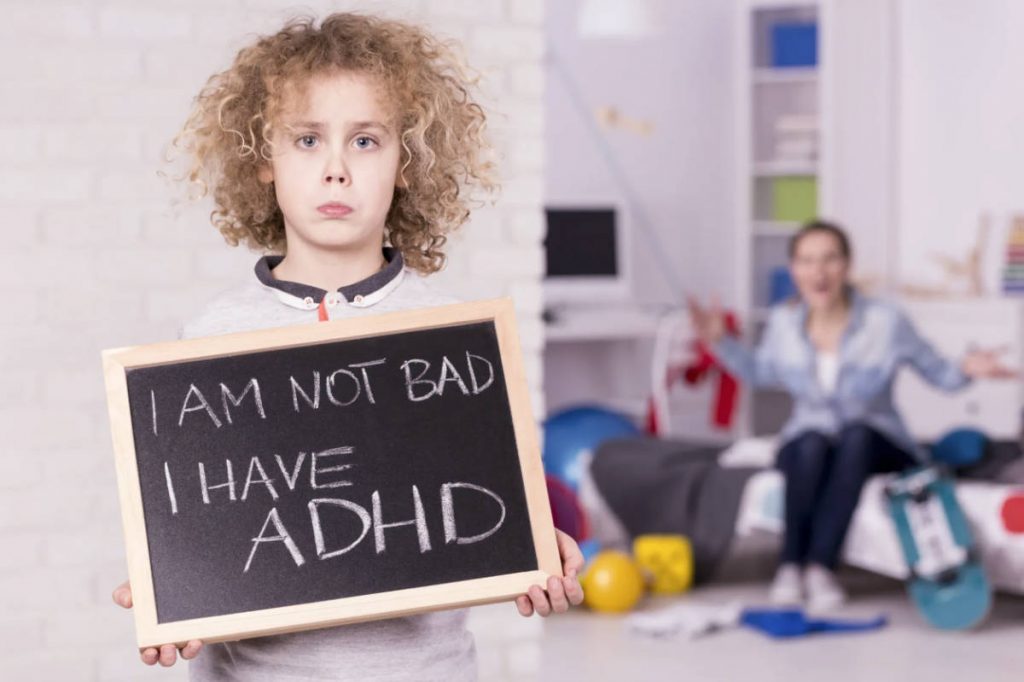Signs Your Child May Have ADHD! Does your child have difficulty concentrating, staying organized, and controlling their impulses? They could be exhibiting signs of Attention Deficit Hyperactivity Disorder (ADHD)! But it can often be hard to tell whether a young one may suffer from the condition.
Read on for five key indicators that suggest ADHD might explain why life is challenging for them – plus find out how identifying it early makes all the difference in managing symptoms and finding success!
Signs Your Child May Have ADHD!
Parenting is a bumpy road, full of emotional highs and lows. If you’ve noticed your child just can’t seem to sit still or focus on tasks for long periods of time, it could be more than just the average mischievousness – they may have ADHD! Here are some common signs that might mean your little one needs attention from an expert: hyperactivity levels through the roof; wandering eyes during class lectures; impulsivity in decisions without consequence awareness; trouble following directions completely; difficulty waiting their turn when playing games.

Sign #1: They’re Constantly Moving
Does your little one seem to have a never-ending supply of energy? It could be more than just youthful enthusiasm; it may actually be an indicator that they have Attention Deficit Hyperactivity Disorder (ADHD). Those with ADHD can often struggle when sitting still for any length of time – instead, fidgeting and pacing are the norms. However, while many children exhibit active behavior at times, those who suffer from this condition usually display higher levels compared to their peers.
Sign #2: They Struggle to Pay Attention
If your youngster seems to be living in their own little world, it could just mean they have a vivid imagination – or maybe even ADHD. Kids who struggle with attention and focus often have difficulty following instructions and completing tasks as well. So if you feel like every conversation is having no effect whatsoever…it might be time for an assessment!
Sign #3: They’re Impulsive
Kids naturally act on impulse, but if your child seems to consistently speak and move without regard for any possible implications it could be a sign of ADHD. This can lead to difficulties making friends in school or clashes with family members since children with this disorder are prone to speaking and acting before considering the consequences.
Sign #4: They’re Disorganized
If your child’s room is an explosion of disorganization, it could be a symptom of ADHD. Even the most attentive parents can sometimes miss this sign – so if your youngster has difficulty keeping track of their stuff and tidying up, that may just mean they need some extra attention from mom or dad!
Sign #5: They Daydream A Lot
Daydreamers, take heed! Does your child seem to be off in their own world more often than not? If so, they may have Attention Deficit Hyperactivity Disorder (ADHD). With this condition comes a tendency for kids to find it hard to stay focused on tasks – whether at home or school. So if you’ve noticed that your little one frequently gets lost in their head and has trouble with concentration, then ADHD could potentially be the culprit.
How to Get Your Kid a Diagnosis of ADHD?
Worried that your kiddo may be showing signs of ADHD? The best first step is to schedule a check-up with the pediatrician. During this appointment, you’ll chat about their behavior and development—all while doing brief tests like CPRS-R. From there, the doctor will make a diagnosis or send you off for further assessment if needed!

The possible causes of ADHD:
ADHD can be a complex topic to understand, but what’s most important is that it doesn’t have one single source. It turns out that both genes and the environment play their part – from potentially exposing your child to toxins or stress before birth, to inheriting an increased risk of developing ADHD if someone in your family has it. So when considering those with this condition we should always remember: nature AND nurture are at work here!
Attention Deficit Hyperactivity Disorder (ADHD) has been linked to a chemical imbalance in the brain – particularly, reduced levels of dopamine. This neurotransmitter helps us focus and think clearly, so it makes sense that diminished amounts can lead to symptoms such as restlessness or an inability to concentrate. Genes are thought to be responsible for this irregularity in certain cases; however, its origin remains largely a mystery researchers are trying hard to solve!
Conclusion
Parenting isn’t easy, and it’s even harder if you’re concerned that your child may be dealing with ADHD. But don’t worry–if you think your little one might have some of the symptoms above, get in touch with a medical expert right away! Research shows proper diagnosis and treatment can help kids affected by ADHD enjoy life just like anyone else!
Do you have any tips for other parents? Share your thoughts in the comments below!
More reading suggestions:


